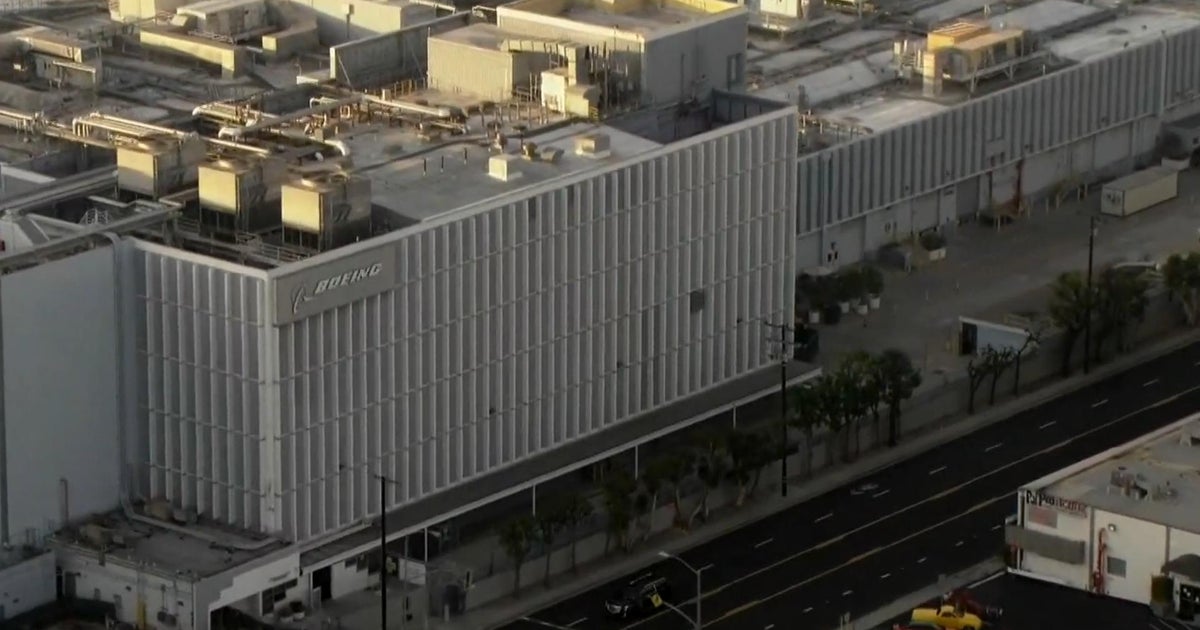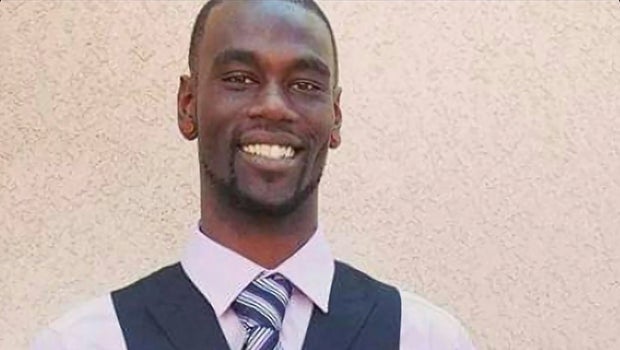CBS News
3 credit card debt relief strategies to consider for 2025

Getty Images/iStockphoto
As Americans grapple with unprecedented credit card debt levels heading into 2025, finding effective relief strategies has become more crucial than ever. Recent Federal Reserve data shows credit card balances surpassed $1.17 trillion in the third quarter of 2024, up from $1.14 trillion the prior quarter, with the average household now carrying nearly $8,000 in credit card debt. This financial burden has been exacerbated by card interest rates climbing to historic highs, with the average credit card APR now exceeding 23%.
Part of the issue is that the lingering high prices due to years of inflation have stretched many household budgets thin and created a perfect storm for credit card debt accumulation. Many households have had to rely on credit cards to weather these financial challenges, but are now trapped in a cycle of minimum payments and mounting interest charges. As a result, traditional debt management approaches, like paying off your balance monthly or using the debt snowball or avalanche methods, may no longer be sufficient.
Luckily, those aren’t the only approaches that those seeking to break free from credit card debt in 2025 can take. There are a few other options that deserve consideration, and if you’re dealing with this type of issue, understanding these alternatives can help you make informed decisions about your financial future.
Compare the debt relief options available to you here.
3 credit card debt relief strategies to consider for 2025
The debt relief approaches outlined below could come in handy as you prepare for the challenging economic landscape ahead.
Streamlining multiple debts with debt consolidation
Debt consolidation is one of the most straightforward approaches to managing high-rate credit card debt, and this type of debt relief is generally available in two primary forms: traditional debt consolidation through banks, credit unions and other lenders and debt consolidation programs offered through debt relief companies.
With traditional debt consolidation, the goal is to take out a new loan through a traditional lender, typically with a lower interest rate, to pay off multiple credit card balances. This strategy allows you to roll multiple credit card balances into one loan, streamlining and lowering your payments, and it can be particularly effective for borrowers with good credit scores who qualify for loans with rates significantly below their current credit card rates.
Debt consolidation programs, on the other hand, provide a structured approach to debt consolidation. These programs function similarly to traditional debt consolidation, but the main difference is that you’re borrowing money via a debt consolidation loan through the debt relief company’s third-party partner lenders. These lenders tend to be more experienced in working with borrowers who have a few blemishes on their credit, so they may be more flexible in terms of borrowing requirements.
Find out how the right debt relief strategy could benefit you now.
Getting professional guidance and structure with debt management
Debt management programs, which are offered through credit counseling agencies, are a comprehensive solution for those struggling with credit card debt. These programs provide professional financial guidance to you while working directly with your creditors to reduce interest rates and establish manageable repayment terms. When you enroll in this program, you’re typically required to close your credit card accounts and make a single monthly payment to the counseling agency, which then distributes the funds to your creditors.
The structured nature of this type of program helps ensure consistent progress toward debt elimination while providing valuable financial education and budgeting support. Most plans also aim to eliminate debt within three to four years, making them an attractive option for those committed to long-term financial recovery. So if you start this process early in 2025 and stick with it, you’ll be on your way to becoming debt-free in just a couple of years.
Settle your debts for less than you owe with debt forgiveness
Credit card rates have steadily climbed over the last decade, and it’s likely they’ll remain high throughout 2025 — no matter what happens with the overall rate environment. As a result, credit card debt forgiveness, also known as debt settlement, could be the best route to take next year for severely overwhelmed borrowers. This approach involves negotiating with creditors to accept less than the full balance and typically results in 30% to 50% of the original debt being forgiven.
You can pursue debt forgiveness on your own, but many people opt to work with debt relief companies instead, as the experience they offer comes in handy during negotiations. Note, though, that this strategy does have some downsides, like credit damage and tax repercussions. There’s also no guarantee that you can settle your card debt for less than what you owe, as card issuers aren’t required to negotiate. But if successful, it can offer serious relief from credit card debt.
The bottom line
As credit card rates continue climbing, many borrowers may need to consider more aggressive approaches to their card debt. Debt consolidation, debt management and debt forgiveness can all be worth considering, but the choice between these strategies often depends on factors such as total debt load, income stability, credit score and long-term financial goals. Whatever strategy you choose, though, addressing your credit card debt proactively is typically the key to long-term financial health.
CBS News
2 students wounded in shooting at Northern California school

Watch CBS News
Be the first to know
Get browser notifications for breaking news, live events, and exclusive reporting.
CBS News
Memphis police discriminate against Black people and use excessive force, Justice Department report finds

The Memphis Police Department uses excessive force and discriminates against Black people, according to the findings of a U.S. Department of Justice investigation launched after the beating death of Tyre Nichols after a traffic stop in 2023.
A report released Wednesday marked the conclusion of the investigation that began six months after Nichols was kicked, punched and hit with a police baton as five officers tried to arrest him after he fled a traffic stop.
The report says that “Memphis police officers regularly violate the rights of the people they are sworn to serve.”
“The people of Memphis deserve a police department and city that protects their civil and constitutional rights, garners trust and keeps them safe,” Assistant Attorney General Kristen Clarke of the Justice Department’s Civil Rights Division said in an emailed statement.
Courtesy of the Nichols family via AP
The city said in a letter released earlier Wednesday that it would not agree to negotiate federal oversight of its police department until it could review and challenge results of the investigation.
City officials had no immediate comment on the report but said they plan to hold a news conference Thursday after Justice Department officials hold their own news conference in Memphis on Thursday morning to address the findings.
Police video showed officers pepper spraying Nichols and hitting him with a Taser before he ran away from a traffic stop. Five officers chased down Nichols and kicked, punched and hit him with a police baton just steps from his home as he called out for his mother. The video showed the officers milling about, talking and laughing as Nichols struggled with his injuries.
Nichols died on Jan. 10, 2023, three days after the beating. The five officers — Tadarrius Bean, Demetrius Haley, Emmitt Martin, Desmond Mills Jr. and Justin Smith — were fired, charged in state court with murder, and indicted by a federal grand jury on civil rights and witness tampering charges.
Nichols was Black, as are the former officers. His death led to national protests, raised the volume on calls for police reforms in the U.S., and directed intense scrutiny towards the police department in Memphis, a majority Black city.
The report specifically mentions the Nichols case, and it addresses the police department’s practice of using traffic stops to address violent crime. The police department has encouraged officers in specialized units, task forces, and on patrol to prioritize street enforcement, and officers and community members have described this approach as “saturation,” or flooding neighborhoods with traffic stops, the report said.
“This strategy involves frequent contact with the public and gives wide discretion to officers, which requires close supervision and clear rules to direct officers’ activity,” the report said. “But MPD does not ensure that officers conduct themselves in a lawful manner.”
The report said prosecutors and judges told federal investigators that officers do not understand the constitutional limits on their authority. Officers stop and detain people without adequate justification, and they conduct invasive searches of people and cars, the report said.
“Black people in Memphis disproportionately experience these violations,” the report said. “MPD has never assessed its practices for evidence of discrimination. We found that officers treat Black people more harshly than white people who engage in similar conduct.”
The investigation found that Memphis officers resort to force likely to cause pain or injury “almost immediately in response to low-level, nonviolent offenses, even when people are not aggressive.”
The report says officers pepper sprayed, kicked and fired a Taser at an unarmed man with a mental illness who tried to take a $2 soda from a gas station. By the end of an encounter outside the gas station, at least nine police cars and 12 officers had responded to the incident, for which the man served two days in jail for theft and disorderly conduct.
In a letter to the Justice Department’s Civil Rights Division released earlier Wednesday, Memphis City Attorney Tannera George Gibson said the city had received a request from the DOJ to enter into an agreement that would require it to “negotiate a consent decree aimed at institutional police and emergency services.”
A consent decree is an agreement requiring reforms that are overseen by an independent monitor and are approved by a federal judge. The federal oversight can continue for years, and violations could result in fines paid by the city.
It remains to be seen what will happen to attempts to reach such agreements between cities and the Justice Department once President-elect Donald Trump returns to office and installs new department leadership. The Justice Department under the first Trump administration curtailed the use of consent decrees, and the Republican president-elect is expected to again radically reshape the department’s priorities around civil rights.
“Until the City has had the opportunity to review, analyze, and challenge the specific allegations that support your forthcoming findings report, the City cannot — and will not — agree to work toward or enter into a consent decree that will likely be in place for years to come and will cost the residents of Memphis hundreds of millions of dollars,” the letter said.
The officers in the Nichols case were part of a crime suppression team called the Scorpion Unit, which was disbanded after Nichols’ death. The team targeted drugs, illegal guns and violent offenders, with the goal of amassing arrest numbers, while sometimes using force against unarmed people.
Memphis police never adopted policies and procedures to direct the unit, despite alarms that it was minimally supervised, according to the Justice Department report. Some prosecutors told department investigators that there were some “outrageous” inconsistences between body camera footage and arrest reports, and if the cases went to trial, they would be “laughed out of court.” The report found that the unit’s misconduct led to dozens of criminal cases being dismissed.
In court proceedings dealing with Nichols’ death, Martin and Mills pleaded guilty to the federal charges under deals with prosecutors. The other three officers were convicted in early October of witness tampering related to the cover-up of the beating. Bean and Smith were acquitted of civil rights charges of using excessive force and being indifferent to Nichols’ serious injuries.
Haley was acquitted of violating Nichols’ civil rights causing death, but he was convicted of two lesser charges of violating his civil rights causing bodily injury. The five men face sentencing by a federal judge in the coming months.
Martin and Mills also are expected to change their not guilty pleas in state court, according to lawyers involved in the case. Bean, Haley and Smith have also pleaded not guilty to state charges of second-degree murder. A trial in the state case has been set for April 28.
Justice Department investigators have targeted other cities with similar probes in recent years, including Minneapolis after the killing of George Floyd, and Louisville, Kentucky, following an investigation prompted by the fatal police shooting of Breonna Taylor.
In its letter, the city of Memphis said the DOJ’s investigation “only took 17 months to complete, compared to an average of 2-3 years in almost every other instance, implying a rush to judgment.”
CBS News
Boeing whistleblower says alleged safety violations at satellite factory put workers in danger

Watch CBS News
Be the first to know
Get browser notifications for breaking news, live events, and exclusive reporting.




